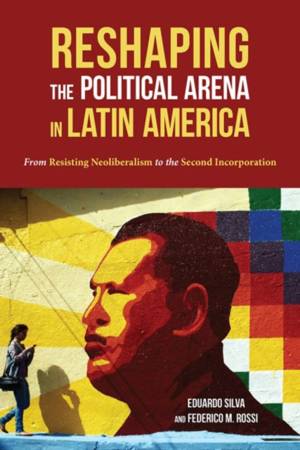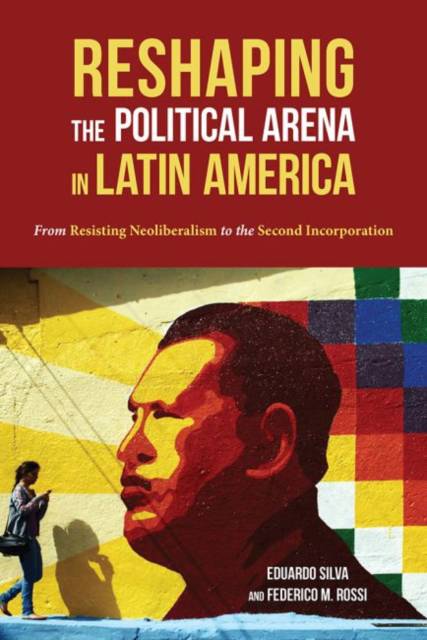
- Afhalen na 1 uur in een winkel met voorraad
- Gratis thuislevering in België vanaf € 30
- Ruim aanbod met 7 miljoen producten
- Afhalen na 1 uur in een winkel met voorraad
- Gratis thuislevering in België vanaf € 30
- Ruim aanbod met 7 miljoen producten
Zoeken
Reshaping the Political Arena in Latin America
From Resisting Neoliberalism to the Second Incorporation
€ 91,95
+ 183 punten
Omschrijving
Neoliberalism changed the face of Latin America and left average citizens struggling to cope in many ways. Popular sectors were especially hard hit as wages declined and unemployment increased. The backlash to neoliberalism in the form of popular protest and electoral mobilization opened space for leftist governments to emerge. The turn to left governments raised popular expectations for a second wave of incorporation. Although a growing literature has analyzed many aspects of left governments, there is no study of how the redefinition of the organized popular sectors, their allies, and their struggles have reshaped the political arena to include their interests--until now. This volume examines the role played in the second wave of incorporation by political parties, trade unions, and social movements in five cases: Argentina, Bolivia, Brazil, Ecuador, and Venezuela. The cases shed new light on a subject critical to understanding the change in the distribution of political power related to popular sectors and their interests--a key issue in the study of postneoliberalism.
Specificaties
Betrokkenen
- Uitgeverij:
Inhoud
- Aantal bladzijden:
- 360
- Taal:
- Engels
- Reeks:
Eigenschappen
- Productcode (EAN):
- 9780822965121
- Verschijningsdatum:
- 12/04/2018
- Uitvoering:
- Paperback
- Formaat:
- Trade paperback (VS)
- Afmetingen:
- 152 mm x 226 mm
- Gewicht:
- 566 g

Alleen bij Standaard Boekhandel
+ 183 punten op je klantenkaart van Standaard Boekhandel
Beoordelingen
We publiceren alleen reviews die voldoen aan de voorwaarden voor reviews. Bekijk onze voorwaarden voor reviews.










